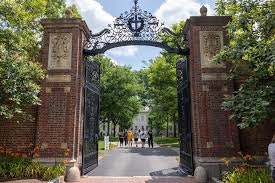
Harvard President Dr. Alan Garber took a firm stance against the administration's conditions, stating that "The University will not surrender its independence or relinquish its constitutional rights." Garber emphasized that "No government — regardless of which party is in power — should dictate what private universities can teach, whom they can admit and hire, and which areas of study and inquiry they can pursue."
The funding freeze marks the seventh time the Trump administration has taken such action against elite universities, with six of the seven targeted institutions being members of the Ivy League. Columbia University was the first institution targeted and ultimately acquiesced to government demands, followed by funding pauses at the University of Pennsylvania, Brown, Princeton, Cornell, and Northwestern.
At the heart of the dispute are government demands that Harvard implement "merit-based" admissions and hiring policies, conduct an audit of the student body, faculty, and leadership regarding their views on diversity, ban face masks on campus, and cease recognition of student groups that allegedly "endorse or promote criminal activity, illegal violence, or illegal harassment."
Harvard maintains that it has already implemented extensive reforms to address antisemitism concerns, which the administration has cited as justification for its actions. Garber argued that many of the government's demands extend beyond addressing antisemitism and instead represent an attempt to regulate the "intellectual conditions" at Harvard.
The funding freeze has triggered significant backlash, including a protest from the Cambridge community and a lawsuit from the American Association of University Professors challenging the cuts. Harvard alumni have also rallied behind the university, with one group urging leadership to "legally contest and refuse to comply with unlawful demands that threaten academic freedom and university self-governance."
With an endowment exceeding $50 billion, Harvard appears positioned to withstand the financial pressure while other institutions with fewer resources may find themselves more vulnerable to similar government actions.















